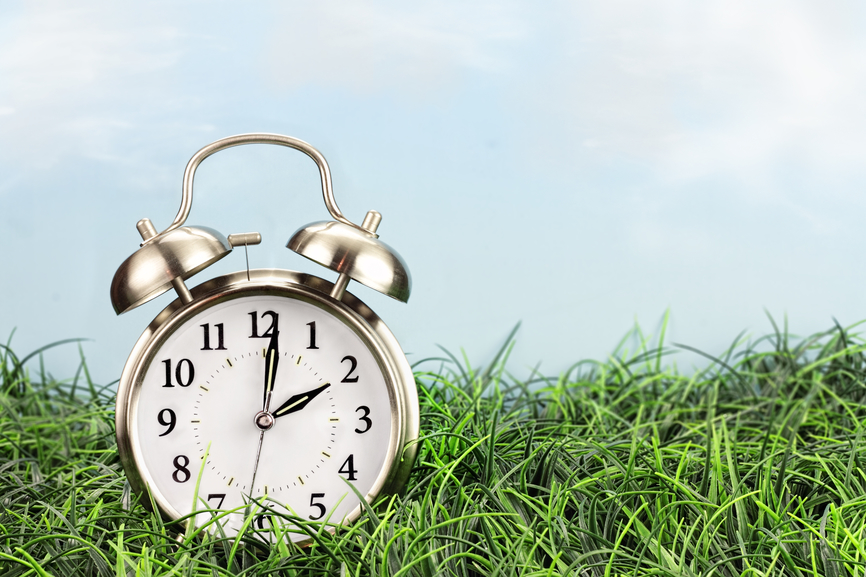We spring forward on March 8 at 2:00 am. During this time change, we technically lose an hour of sleep, but for families of little ones, it’s mind over matter because our children will be getting up an hour later on the clock. If you’re a parent, this is a win! Time changes can cause parents to stress that it will cause havoc on their child’s sleep, and that doesn’t have to be the case if you keep some basic tips and options in mind.
Option #1- Do nothing!
This time change is easier, so preparation ahead of time is not necessary for most babies. Switch to the new time and your baby (and you) will adjust within a few days. Expose your child to more bright light in the morning and begin to wind down your home with lower light in the evening. That will help induce drowsiness and allow your child to fall asleep easily.
Option #2- Move earlier by 15 minute increments every day after the time change.
Your baby who normally wakes at 7 will wake at 8. A nap that normally occurs at 9 would be at 10 on the first day. Make it 9:45 the next day, then 9:30, then 9:15, then 9:00. Some babies can shift in half hour increments to make the switch faster.
Option #3-Shift everything to the new time and be on a later schedule
This option sounds good on paper, but carrying it out can be difficult. Parents that have early risers or children that go to bed very early often want to try this, but it only works if you shift all naps, meals, and activities to be an hour later as well. If there are things that cannot be controlled to be an hour later (wake up time due to going to daycare or naps that are daycare regulated) this option often backfires and can lead to short naps and early waking.
Keep it dark and noisy
Use blackout shades and white noise to encourage deeper and longer sleep at night. As the sun sets later, there may be light in your child’s bedroom which can make it difficult to fall asleep. Making the room darker can help your child fall asleep even if the sun sets at 9pm and it will also help them stay asleep when the sun rises at 5 am! White noise can also keep the outside spring and summer noises from causing your child to stir at these early hours.
Stick to what works
Keep your child’s sleep routine and schedule as consistent as possible during the time change and your child will remain well rested. Parents should also give themselves the opportunity to follow a good sleep routine to maintain their own sleep quality. This time change isn’t as bad as falling back, so hopefully you will enjoy a few days of “sleeping in.”

